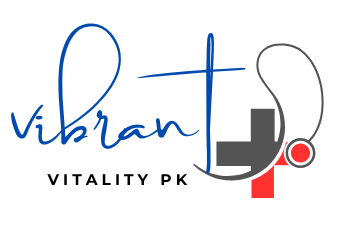INTERACTIVE IMPACT OF BALANCED DIET AND NUTRITION ON HUMAN HEALTH

A balanced diet is a plan for what you eat and
drink. It can be used to lose weight, gain weight, or improve your health.
Balanced diet tenders to nutrition which is essential for human health. It’s
necessary for the overall functioning of the human body and mind.
 |
| Balanced Diet |
There are many different types of diets, but
some of the most popular healthy diets include:
• Mediterranean
diet: The Mediterranean diet is a healthy diet that is based on the
traditional foods of countries around the Mediterranean Sea. It is rich in fruits,
vegetables, whole grains, legumes, fish, and olive oil.
• DASH
diet: The DASH diet is a healthy diet that is designed to lower blood
pressure. Fruits, vegetables, whole grains, and low-fat dairy products are its
main sources.
• Whole-foods
plant-based diet: The whole-foods plant-based diet is a healthy diet that
is based on whole, plant foods. It’s composed of fruits, vegetables, whole
grains, legumes, nuts, and seeds.
A balanced diet is essential for maintaining
overall well-being and promoting good health. It involves consuming a balanced
combination of nutritious foods from different food groups while limiting the
intake of unhealthy options. There are some guidelines for a healthy and
balanced diet:
1. Eat a
variety of foods: Include foods from all major food groups, including
fruits, vegetables, whole grains, lean proteins (such as poultry, fish, the
legumes), and healthy fats.
2. Portion
control diet: One should be careful about overeating. It’s important to
maintain a calorie balance that aligns with your activity level and goals.
3. Fruits
and vegetables: Aim to consume a variety of colorful fruits and vegetables,
as they are packed with vitamins, minerals, and antioxidants. These helps protect against diseases and promote good health.
4. Whole
grains: Choose whole grains like brown rice, quinoa, oats, and whole wheat
bread over refined grains.
5. Lean
proteins: Include lean sources of protein in your diet, such as chicken,
turkey, fish, eggs, tofu, and legumes. Such proteins are important for muscle
growth, repair, and overall health.
6.
Healthy fats: Incorporate sources of healthy fats into your diet, such as
avocados, nuts, seeds, and olive oil. These fats are important for brain
function, hormone production, and overall well-being.
7. Limit
processed foods: Minimize your intake of highly processed foods that are
often high in added sugars, unhealthy fats, and sodium. These include sugary
drinks, snacks, fast food, and packaged meals.
8. Stay
hydrated: It’s healthy and essential to drink an adequate quantity of
water. Intake of ample water is important in bodily functions mainly for
digestion and nutrition absorption.
9. Limit
added sugars: Be mindful of the amount of added sugars in your diet. opt
for natural sources of sweetness like fruits, and limit sugary beverages,
candies, and desserts.
10. Moderation
is key: Allow yourself the occasional treat or indulgence but strive for
balance and moderation in your overall eating habits.
WHAT IS NUTRITION?
Nutrition is the body of knowledge that explains
the impact of food on the human body and health. It covers the interaction of
nutrients and the body, nutrient usage, and diseases.
Nutrients are substances that provide
nourishment. They are essential for growth, development, and the maintenance of
good health.
7 major types of nutrients are essential for human
health:
• Carbohydrates:
Carbohydrates provide energy. Bread, pasta, rice, fruits, and vegetables are
the main sources of carbohydrates.
• Proteins:
These building blocks are found in foods like meat, fish, poultry, eggs, dairy
products, and beans.
• Fats:
Fats are essential for many bodily functions, including storing energy,
absorbing vitamins, and protecting organs. They are found in foods like meat,
fish, poultry, dairy products, nuts, and seeds.
• Vitamins:
Vitamins are essential for many bodily functions, including regulating
metabolism, building bones and teeth, and fighting infection. Predominantly,
fruits, vegetables, whole grains, and dairy products are their major sources.
• Minerals
are essential for many bodily functions, including building bones and teeth,
regulating blood pressure, and transporting oxygen. Fruits, vegetables, whole
grains, and dairy products are its sources.
• Dietary
fiber is not a nutrient, but it is essential for good health. It helps to
keep the digestive system healthy and can help to lower cholesterol levels.
Fruits, vegetables, whole grains, and legumes are rich in fiber.
• Water
is essential for life. It makes up about 60% of the body’s weight and is
involved in many bodily functions, including transporting nutrients, removing
waste products, and regulating body temperature.
A balanced Diet should be effective, planned,
and balanced, meaning that it should include a variety of foods from all the
major food groups. It should also be moderate in calories, meaning that it
should not provide too many or too few calories for your individual needs.
Some people choose to follow a specific diet,
such as the Mediterranean diet or the DASH diet. Others choose to simply focus
on eating more fruits, vegetables, and whole grains. There is no single-fitted
strategy for a balanced diet because diet mainly depends upon human physical
exertion and life routine as well. The best way to find a balanced and healthy
diet that works for you is to talk to your doctor or a registered dietitian.
The nutrients are subdivided into to subcategories i.e., Macronutrients
are needed in larger amounts, while micronutrients are needed in smaller
amounts.
• Macronutrients
include carbohydrates, proteins, and fats. They provide the body with energy
and are essential for growth and development.
• Micronutrients
include vitamins and minerals. They are needed in smaller amounts, but they are
still essential for good health. Vitamins help the body to metabolize food,
build bones and teeth, and fight infection. Minerals help the body to regulate
blood pressure, build bones and teeth, and transport oxygen.
It is important to eat a variety of foods to
ensure that you are getting all of the nutrients that your body needs. The
Dietary Guidelines for Americans recommend that adults consume a variety of
nutrient-rich foods from all food groups each day.
Conclusion
So, it is concluded that both balanced diet and
nutrition have direct bearing in maintaining human wellbeing pertaining human
health. Healthy body and mind have a significant impact on overall functioning
of human. The intake of both micro and macro nutrients is essential for
overall wellbeing. Therefore, it’s evident that combined effect of nutrition
and balanced diet facilitate human to carry out day to day affairs of life
effectively.







One Comment